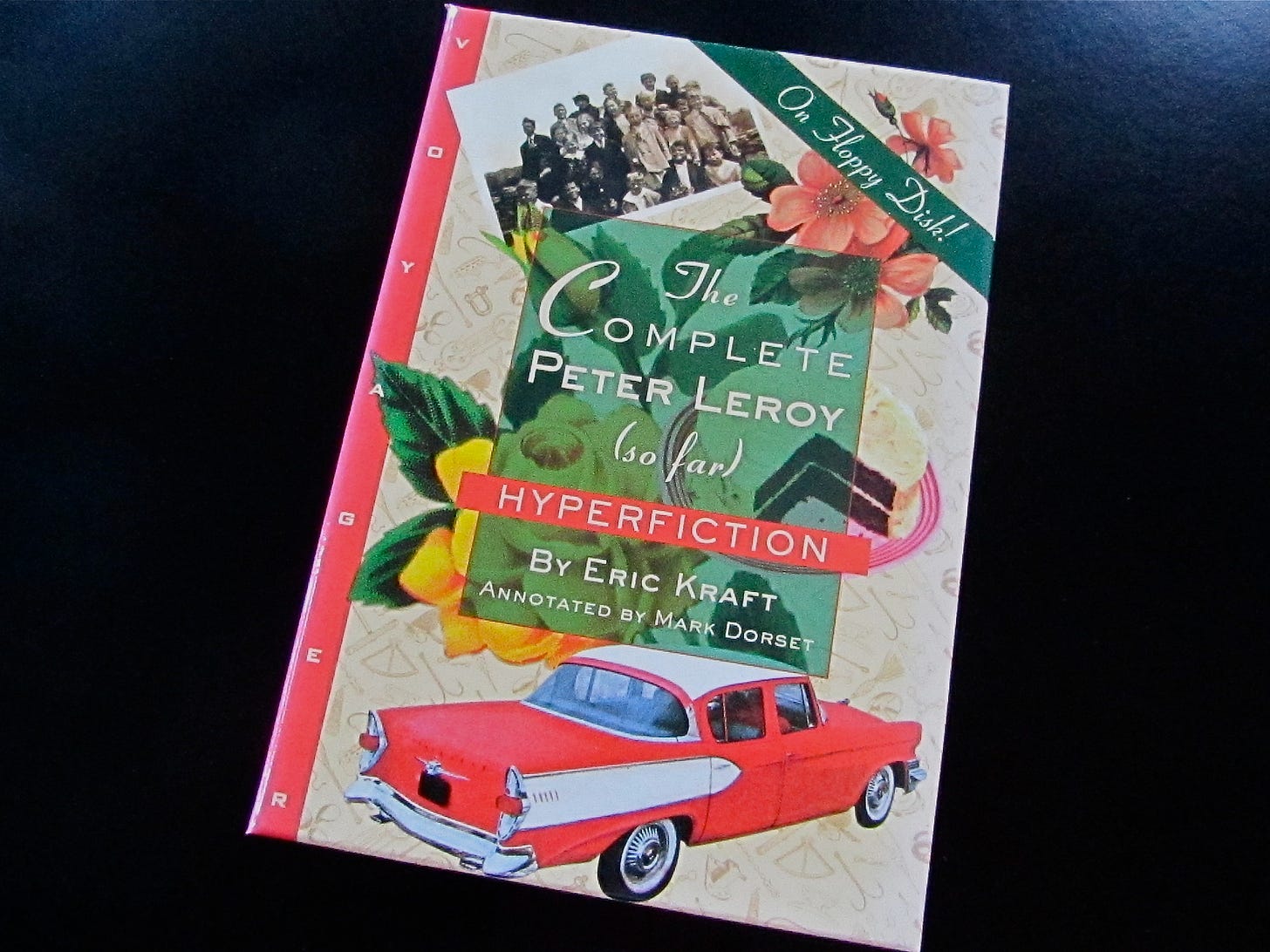Name, What’s in a
Reservations Recommended, Chapter 2
Belinda says, “I work for Zizyph. Zizyph Software? It’s a computer software company.” She bursts out laughing. “Of course it’s a computer software company. That’s why it’s called Zizyph Software.”
In my annotations to Voyager’s interactive version of The Complete Peter Leroy (so far), I included this entry for Zizyph:
A fictitious computer company located in Cambridge, Massachusetts; the name is apparently derived from the name of a tree of the buckthorn family, Zizyphus lotus, which is reputed to bear the fruit that in Homer’s Odyssey is eaten by the lotus-eaters, who live in a state of dreamy indolence induced by the fruit they eat. —MD
Lotus Software (called Lotus Development Corporation before its acquisition by IBM) was an American software company based in Massachusetts; it was “offloaded” to India’s HCL Technologies in 2018.
Lotus is most commonly known for the Lotus 1-2-3 spreadsheet application, the first feature-heavy, user-friendly, reliable and WYSIWYG-enabled product to become widely available in the early days of the IBM PC, when there was no graphical user interface.
Wikipedia: [Lightly edited by me, with emphasis added. MD.]
The Expanded Books Project was a project by The Voyager Company during 1991, that investigated how a book could be presented on a computer screen in a way that would be both familiar and useful to regular book readers. […]
Much of the impetus for Expanded Books derived from a meeting on digital books that Voyager sponsored on Bloomsday in 1990, attended by various pioneering multimedia and hypertext experts. […]
The first three book titles (The Complete Hitch Hiker’s Guide to the Galaxy, The Complete Annotated Alice, and Jurassic Park) were released at MacWorld San Francisco in January 1992. These books and their successors relied on a “book engine” that provided a simple but powerful feature set: convenient and simple search methods, the ability to switch between large print and normal print versions, unobtrusive navigation tools (such as a chapter menu that dropped down from the chapter heading on each “page”), a margin area on each page in which readers could write notes, and interactive annotations. For example, Moby-Dick included a sound clip of the sea as an annotation, and The Annotated Alice provided pop-up annotations derived from both editions of Martin Gardner’s work.However, some readers found these annotations unwieldy and difficult to navigate, with poor usability.
Expanded Books was not initially the definitive title of the product range. Another favored contender was “Power Books,” but that idea died when Voyager was told Apple’s about-to-be-released notebooks were to be called PowerBooks. Hence, the original project name became the product name.
See also: Name, What’s in a TG 38, TG 43
[to be continued on Wednesday, March 15, 2023]
Have you missed an episode or two or several?
You can begin reading at the beginning or you can catch up by visiting the archive or consulting the index to the Topical Guide.
You can listen to the episodes on the Personal History podcast. Begin at the beginning or scroll through the episodes to find what you’ve missed.
You can listen to “My Mother Takes a Tumble” and “Do Clams Bite?” complete and uninterrupted as audiobooks through YouTube.
You can ensure that you never miss a future issue by getting a free subscription. (You can help support the work by choosing a paid subscription instead.)
At Apple Books you can download free eBooks of Little Follies and Herb ’n’ Lorna.
You’ll find overviews of the entire work in An Introduction to The Personal History, Adventures, Experiences & Observations of Peter Leroy (a pdf document) and at Encyclopedia.com.



